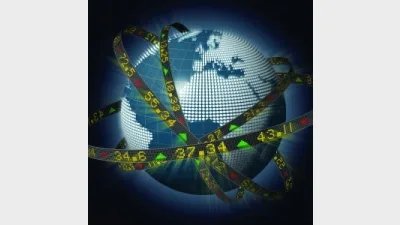Asian EMs going strong amid trade war fears



Emerging markets (EMs) have had a surprisingly strong start to the year considering that the past month has been dominated by talks of a potential trade war, with the EM Equities sector recording average returns of 3.22 per cent for the March quarter according to FE Analytics.
The top performing funds were the GMO Emerging Markets fund, returning 6.55 per cent for the quarter, the Colonial First State RAFI Emerging Markets fund with 5.63 per cent and the Robeco Emerging Conservative Equity fund with 5.45 per cent.
The GMO fund was also the strongest performer for the year to 31 March, 2018, delivering impressive returns of 20.57 per cent.
The only fund to record negative returns for the quarter was the BT Wholesale Global Emerging Markets Opportunities fund, with –0.85 per cent.
Global market strategist at JP Morgan Asset Management, Kerry Craig, speaking before the launch of JP Morgan’s latest Guide to the Markets – Australia yesterday, said that these generally strong performances looked set to continue.
“We believe that emerging markets are approaching only the middle of their cycle, especially with the striking breadth of earnings growth across sectors. Moreover, EM multiples are still just approaching their long-term averages, which suggests ample opportunity for future gains.
“In particular, EM valuations remain attractive relative to developed markets including the US, where valuations are above their long-term average,” he found in the Guide.
Craig said that the growth differential with developed market equities had widened so we were seeing EM stocks generate greater alpha. The Guide found that the wider emerging-developed markets differential should continue to boost foreign direct investments and portfolio inflows into EM equities.
Interestingly, data from FE Analytics revealed that both the GMO and Robeco funds were heavily exposed to EMs in the Asia Pacific specifically. Almost three quarters of Robeco’s investments, for example, were invested in Asian EMs, with Chinese, Taiwanese, Malaysian and South Korean equities having the strongest presence. GMO had 28.6 per cent of its assets in the region too.
Reflecting this, Kerry said that EMs had performed surprisingly well in the last quarter despite talks of a trade war between the US and China.
“EM equities remain underpinned by the continuing improvement in corporate earnings and fundamentals brought about by a strong Chinese economy as well as the ongoing, synchronised global trade recovery,” JP Morgan said.
In fact, EMs in Asia could be a pertinent market for investors in search of long-term growth to look to in portfolio construction.
“Importantly, EM is still a very under-owned asset class, and we remain convinced by emerging markets’ long-term structural prospects, especially in emerging Asia,” Craig said.
He was also reassured that the qualities that have characterised emerging markets in Asia should not be overly impacted by risks of a trade war.
Recommended for you
Insignia Financial has reported net inflows of $448 million into its asset management division in the latest quarter, as well as popularity from advisers for its MLC managed accounts.
With ASIC questioning the dominance of research houses when it comes to retail usage of private market funds, a research house has shared how its ranking process sits alongside ASIC’s priorities.
Two Australian active fund managers have been singled out by Morningstar for their ability to achieve consistent performance and share price growth in the past 12 months.
Pinnacle Investment Management has expanded its private market coverage, forging a strategic partnership with a private markets manager via a 13 per cent stake acquisition.












